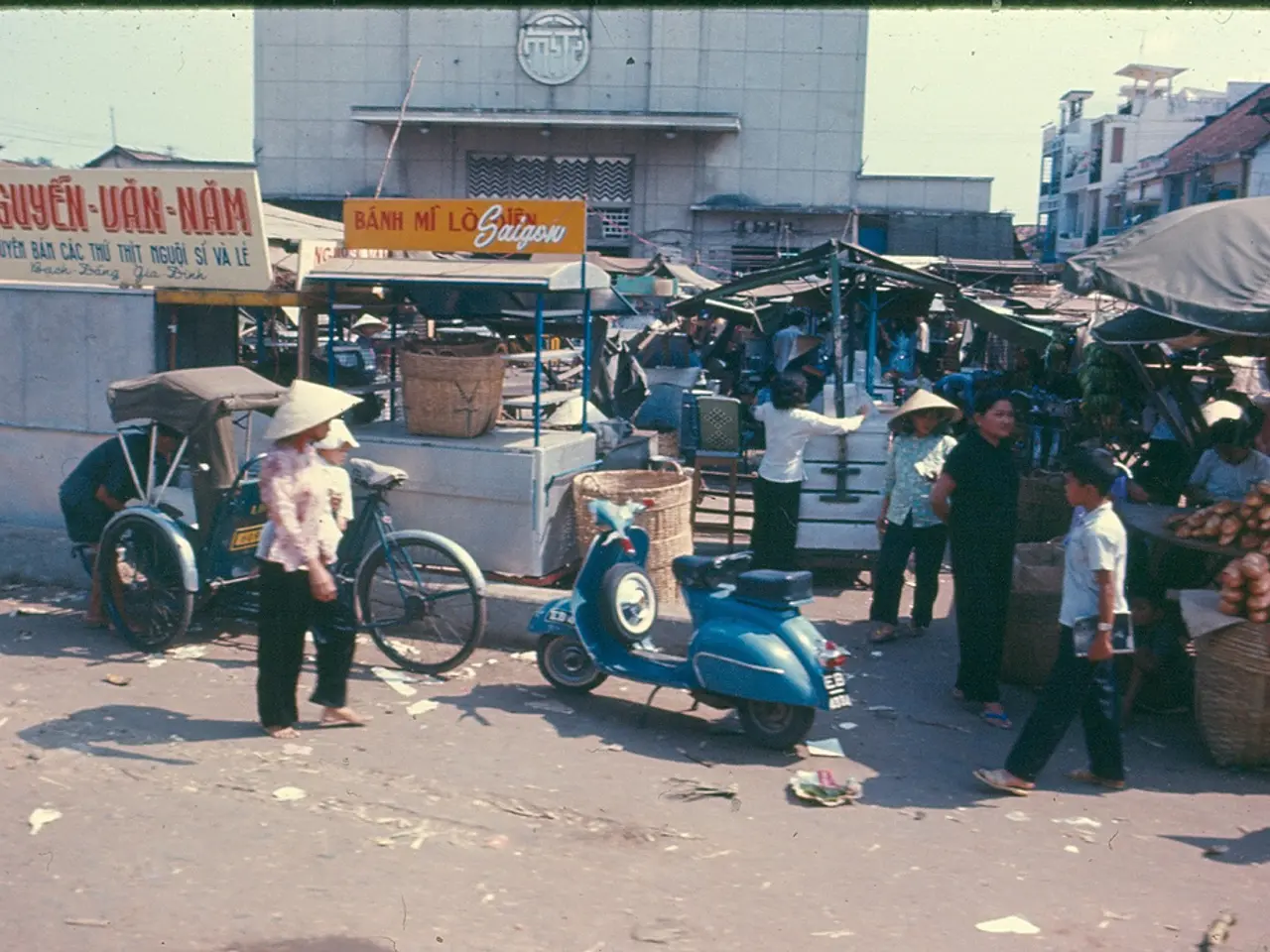Yesterday's waste transformed into noteworthy street furniture is now visible for our visitors.
In the heart of Russia's Sverdlovsk region, a significant collaboration between Uralvtorma and G-Eco is making strides in plastic waste recycling. This partnership, based in Yekaterinburg, aligns with regional environmental initiatives aimed at improving waste management and promoting sustainable resource use.
Background
Uralvtorma, a well-established company specialising in the collection and processing of secondary raw materials, including various types of waste plastics, has joined forces with G-Eco, an enterprise involved in ecological projects, waste sorting, and recycling activities, emphasising innovative technologies for environmental protection.
History of Collaboration
The partnership between Uralvtorma and G-Eco began as a strategic effort to tackle the increasing generation of plastic waste in the Sverdlovsk region. Initiated in the early 2020s, the joint venture focused on pilot projects that concentrated on the collection, sorting, and processing of plastic waste streams from municipal and industrial sources. The goal was to create an efficient closed-loop system, reduce landfill dependence, and produce recycled plastic materials suitable for reuse in manufacturing.
Progress
The collaboration has led to the establishment of enhanced sorting facilities that improve the quality of recycled plastics. Modern recycling technologies, such as advanced washing and pelletizing, have been introduced, allowing higher purity and better-grade recycled plastics. Together, they have increased the volume of processed plastic waste significantly compared to prior individual efforts, contributing to local waste reduction targets.
The partnership has fostered community awareness programs and cooperation with local authorities to promote public participation in recycling. Recent developments include expanding their operational capacity and exploring the production of recycled plastic products.
Impact
The work of Uralvtorma and G-Eco supports the Sverdlovsk region’s environmental goals to reduce plastic pollution. The collaboration serves as a model for waste management integration between collection services and recycling technology providers. It enhances the local circular economy by turning plastic waste into reusable materials, offering environmental and economic benefits.
Expansion and Future Plans
Several stores in the partnership now have "Uralvtorma" containers for collecting plastic waste, with bonuses for visitors who recycle. The current network of eco-points totals 19, with plans to open new ones in the Academic District and suburban cities. Recycling points for plastic and paper can be found in several districts of Yekaterinburg, including Kirovsky, Chkalovsky, Oktyabrsky, Ordzhonikidze, and others.
The collaboration between "Uralvtorma" and "G-Eco" is supported by the regional Ministry of Energy and Housing and Communal Services, which oversees waste management in the region. Last year, the entrepreneurs decided to combine their resources on a platform in Yekaterinburg. "Uralvtorma" allocated a hangar for a partner's workshop, and equipment was delivered there before the New Year holidays.
There is particular interest in educational institutions, where various environmental projects are being implemented. Children in Nizhny Tagil are collecting plastic to make flower pots for a local park. Mikhail Kichigin and a school in Nizhny Tagil have agreed to supply plastic waste for the production of benches.
Uralvtorma and G-Eco plan to increase production volumes, find new customers, and expand their network of eco-points. Municipalities from the Sverdlovsk region and neighbouring regions, managing companies, and builders are gradually taking notice of the products produced by G-Eco. Around 2 tons of plastic are processed per month at the combined platform, with a maximum capacity of 10 tons.
"Uralvtorma" and "G-Eco" have combined resources, forming a full cycle of plastic waste recycling, which is the first such project in the Sverdlovsk region. In its first year of operation, G-Eco produced around 700 items - benches, bins, and other structures. Andrei Tagankin explains that the Soviet system, where people received bonuses for ecological actions, was more effective.
Every month, 500-700 tons of paper, film, and plastic are collected at the existing eco-points. Andrey Tagankin heads an enterprise that has been specialising in collecting and recycling paper waste since Soviet times, and later started accepting plastic and film from citizens and local organisations. Mikhail Kichigin's project is much younger. He started setting up his eco-furniture production in 2021, making panels for benches, bins, and loungers from a polymer sand mixture, which is 30% plastic and 70% river sand.
"Uralvtorma" has partnered with the "Zhizn'mart" store network for the production of benches, tables, trash cans, and bike racks. Waste collection is voluntary to motivate people to sort and prepare materials.
- The collaboration between Uralvtorma and G-Eco extends beyond plastic waste recycling, as they also explore opportunities in home-and-garden sectors, such as the production of recycled plastic products like benches and park furniture.
- With a shared goal of promoting sustainable living, the partnership between Uralvtorma and G-Eco inspires lifestyle changes, implementing programs where children collect plastic waste for use in environmental-science projects, like making flower pots and benches for local parks.
- The success of the Uralvtorma and G-Eco partnership goes beyond waste management, positively impacting the regional economy by transforming secondary raw materials, including waste plastics, into valuable resources, ultimately fostering a more circular and sustainable lifestyle.




